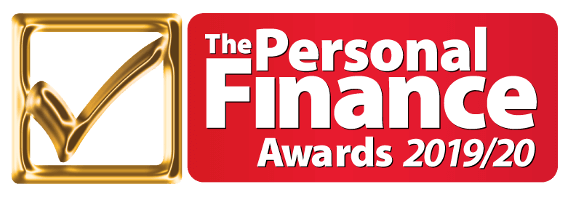Also known as homeowner loans or second charge mortgages, a secured loan is a type of loan which is offered based on the amount of available equity in your property.
It's secured against your property in the same way a mortgage is, which means if you don't keep up repayments, your home could be at risk.
Because of the potential consequences, it's particularly important to think carefully before taking out a secured loan. Here's what you need to know.
What exactly is a secured loan?
A secured loan uses your property as security. If you want to borrow a larger sum, a secured loan can offer an affordable solution.
With your property being provided as collateral against the debt, lenders are more willing to provide the loan.
Using your property as security simply means that if you don't repay the loan, the lender can make a claim to take possession of your property. Providing you maintain the repayments as agreed, having a loan secured on your property will not feel any different to an unsecured loan.
Can anyone take out a secured loan?
To qualify for the type of secured loan known as a second charge, you'll need to be both a homeowner and already have a mortgage. There needs to be available equity in your property, in addition to the balance that's outstanding on your mortgage.
If you're not eligible for a secured loan, consider alternatives which may be suitable such as an unsecured loan or a guarantor loan. If you're not sure what's right for you, an independent financial advisor can help.
Sounding good! How much can I borrow?
Secured loans usually start off slightly higher than an unsecured loan. The typical range for a secured loan varies between £5,000 and £2,500,000.
It is possible to obtain a secured loan for a sum outside this range, but you'll typically need to contact the lender.
Do remember though it's essential not to overstretch yourself when borrowing money. With a secured loan your property could be a risk if you fall behind. Before any loan is offered, a full affordability check will be carried out, regardless of the equity available in your home.
You can choose how long you want to take to repay the loan but many lenders will allow up to 25 years, depending on how much you borrow. Do remember though, the longer you take to repay the loan, the more interest you'll be paying overall.
What can I use a secured loan for?
It's up to you! Generally, secured loans are used for larger expenses such as extending or renovating your property or buying a car. Secured loans are also a convenient way to consolidate multiple debts into one single monthly payment.
I don't have great credit - can I still apply?
It's up to you! Generally, secured loans are used for larger expenses such as extending or renovating your property or buying a car. Secured loans are also a convenient way to consolidate multiple debts into one single monthly payment.
Even if you have poor credit, you could still qualify for a secured loan. A credit check will be needed but Loans Warehouse carry out what's known as a soft search so it won't show up on your record.
If you don't have a perfect credit score, don't be deterred by the mention of a credit check. The criteria for a secured loan is different to an unsecured loan and providing repayments are affordable, you may be surprised at the decision.
I'm worried about securing the loan on my property - is there any other way?
A secured loan provides the lender with a means of recouping their money if you default on repayments. The only way of doing this is securing the loan against your property. This does mean if you fall into arrears your home could be at risk, just like a mortgage.
If this isn't something you're comfortable with, a secured loan may not be the right product for you. There's no way of getting the same terms as a secured loan without agreeing to use your property as security.
What are the pros and cons of a secured loan?
Still trying to decide if it's right for you? Here are the pros and cons of a secured loan in a nutshell:
Pros:
- Interest rates are typically lower
- Monthly repayments are more affordable
- You can choose a longer term up to 25 years
- It's possible to borrow larger sums, up to £2,500,000 depending on affordability
- Secured loans can be used for multiple purposes, including debt consolidation
Cons:
- Over the longer term of a secured loan you may end up repaying more
- Your home may be at risk if you don't keep up to date with repayments
- You will need to be a homeowner with a mortgage and surplus equity to qualify.



